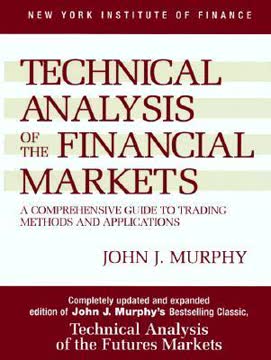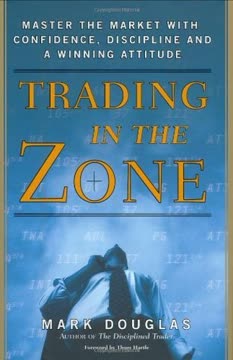重点摘要
1. 市场永远是对的:适应或消亡
“市场从不在其行为上出错;它只是存在。”
接受市场现实。 市场是一种反映所有参与者集体行为的非个人力量。它不关心你的意见、信仰或愿望。作为交易者,你的任务是与市场现实保持一致,而不是与之对抗。
适应以生存和繁荣。 成功的交易需要心理灵活性和快速改变视角的能力。当市场条件变化时,你必须愿意相应调整你的策略和心态。那些在面对相反的市场证据时顽固坚持自己信念的人注定会失败。
关注现实,而非理想。 许多交易者陷入了认为市场“应该”根据他们的分析或期望表现的陷阱。这导致了挫折和糟糕的决策。相反,接受市场的现状,并在当前现实中寻找机会。
2. 无限的利润和损失潜力需要有纪律的风险管理
“在任何特定交易中,你永远无法确切知道价格会从某个点移动多远。”
接受不确定性。 市场提供了无限的利润和损失潜力。这一特性为交易者创造了机会和危险。认识到你无法确定地预测价格会移动多远或趋势会持续多久。
实施风险管理。 要在无限风险的环境中生存和繁荣,你必须采取有纪律的风险管理方法。这包括:
- 设置止损订单
- 限制仓位规模
- 在市场和策略之间分散投资
- 使用适当的杠杆
- 保持足够的资本储备
平衡风险与回报。 成功的交易需要在风险和潜在回报之间找到正确的平衡。愿意承担经过计算的风险,但始终保护你的资本免受灾难性损失。
3. 建立理解自己和市场的框架
“要成功,市场迫使你作为交易者以全新的方式负责。”
自我意识至关重要。 理解自己的心理、信念和情感倾向对于成功交易至关重要。建立一个自我分析和持续改进的框架。
市场理解。 同时,努力加深对市场动态、价格行为和推动市场运动的力量的理解。重点关注的关键领域包括:
- 供需动态
- 市场结构和订单流
- 交易者心理和群体行为
- 技术和基本面分析
- 市场间关系
整合自我和市场知识。 最成功的交易者能够将自我理解与市场知识相结合。这使他们能够做出既心理上舒适又与市场现实一致的决策。
4. 学会管理心理能量并克服心理障碍
“通过治愈我们的情感创伤、改变信念的极性或完全解除它来释放自己免受恐惧的限制,这是我们必须通过学习如何管理心理能量来学会的事情。”
识别心理障碍。 识别阻碍你作为交易者的心理障碍。这些可能包括:
- 对损失的恐惧
- 错失恐惧症
- 完美主义
- 控制欲
- 以自我为中心的决策
发展心理管理技巧。 学习和练习管理心理状态和克服心理障碍的技巧。一些有效的方法包括:
- 冥想和正念
- 可视化和心理排练
- 认知重构
- 日记和自我反思
- 肯定和积极自我对话
培养情感韧性。 交易不可避免地会涉及挫折和损失。培养从逆境中反弹的能力,并保持积极、成长导向的心态。
5. 培养自律和情感控制
“要在任何活动中出类拔萃——无论是心理上的,如交易,还是身体上的,如游泳——我们需要学习专业技能。”
发展交易技能。 成功的交易需要一套特定的技能,这些技能必须学习和实践。这些包括:
- 市场分析
- 风险管理
- 交易执行
- 记录保存
- 绩效评估
掌握情感控制。 对于交易者来说,也许最关键的技能是控制情绪的能力。学习:
- 在压力下保持冷静
- 基于逻辑而非情绪做出决策
- 坚持你的交易计划
- 接受损失而不气馁
- 在连胜期间避免过度自信
持续练习。 像任何技能一样,交易纪律和情感控制通过练习得到改善。方法的一致性和对改进的奉献是关键。
6. 理解价格运动的心理学
“所有价格运动都是群体行为的功能。”
集体心理驱动市场。 价格根据所有市场参与者的集体行为而变化。理解影响交易者行为的心理因素可以帮助你预测市场走势。
关键心理因素:
- 恐惧和贪婪
- 群体心态
- 确认偏差
- 锚定于过去的价格
- 对新闻和事件的过度反应
识别市场情绪。 学会评估市场的整体情绪以及它如何影响价格行为。寻找极端乐观或悲观的迹象,因为这些通常预示着主要市场转折。
预测群体行为。 通过理解人群在不同市场条件下的行为倾向,你可以定位自己以从可预测的群体心理模式中获利。
7. 掌握成为成功交易者的三个阶段
“有三个主要领域:感知,即你识别机会的能力;执行,即你执行交易的能力;以及积累,即你允许账户余额在一段时间或一系列交易中增长的能力。”
阶段1:感知。 培养识别真正交易机会的能力。这涉及:
- 市场分析技能
- 模式识别
- 理解市场背景
- 过滤噪音并专注于关键信息
阶段2:执行。 掌握有效执行交易的艺术。关键方面包括:
- 及时进出
- 适当的仓位规模
- 管理交易焦虑
- 遵循你的交易计划
阶段3:积累。 学会随着时间的推移稳定增长你的账户。这需要:
- 适当的风险管理
- 在回撤期间的情绪稳定
- 明智地再投资利润
- 避免过度交易的诱惑
8. 创建并遵循系统的交易计划
“要在这个环境中成功运作,你需要学习如何以可能对你完全陌生的方式控制自己。”
制定全面计划。 创建一个详细的交易计划,概述你的:
- 交易策略
- 风险管理规则
- 进出标准
- 仓位规模指南
- 绩效指标
测试和优化你的计划。 在冒险使用真实资金之前,通过回测和模拟交易彻底测试你的计划。根据结果进行优化和改进。
始终如一地遵循你的计划。 交易者的真正考验在于他们是否能够始终如一地遵循他们的计划,即使在情绪高涨时也是如此。培养坚持规则的纪律,认识到一致性是长期成功的关键。
定期审查和更新。 定期审查你的交易计划和绩效。愿意在市场条件变化或你发现需要改进的领域时进行调整。
9. 将每一刻的完美视为学习机会
“如果你从上述假设出发,你将开始认识到每一刻都成为你发展状态的完美指示,以及你需要做些什么来改善自己。”
采用成长心态。 将每一次交易经历,无论是赢还是输,视为学习和改进的机会。接受你作为交易者不断进化的想法。
从成功和失败中学习。 分析你的获胜和失败交易,以识别你做对了什么以及可以改进的地方。寻找你决策和情感反应中的模式。
练习自我反思。 定期抽出时间反思你的交易表现和个人成长。问自己:
- 这个星期/月我学到了什么?
- 我作为交易者如何改进?
- 哪些领域仍需努力?
- 我是否始终如一地遵循我的交易计划?
寻求持续改进。 始终寻找方法来完善你的技能,更新你的知识,并增强你的交易过程。市场在不断发展,成功的交易者也随之发展。
10. 将负面经历转化为智慧和成长
“当我们跨越恐惧打破某种挫折和不满的循环,或改变痛苦记忆的极性以打破痛苦的循环时,我们获得了智慧,因为我们了解了问题的各个方面。”
将挫折重新定义为机会。 不要将损失或错误视为失败,而是将其视为宝贵的学习经验。问自己可以从每个挑战性情境中提取哪些教训。
培养情感韧性。 学习处理和释放与交易挫折相关的负面情绪的技巧。这可能包括:
- 正念练习
- 认知重构
- 写日记
- 与导师或治疗师交谈
建立积极的交易身份。 利用你的经验,无论是积极的还是消极的,来构建一个强大而有韧性的交易者身份。认识到克服挑战是你成长旅程的重要组成部分。
分享你的智慧。 随着你积累经验并克服障碍,考虑与其他交易者分享你的见解。教导他人可以加强你自己的学习,并为交易社区做出贡献。
最后更新日期:
FAQ
What's "The Disciplined Trader" about?
- Core Focus: "The Disciplined Trader" by Mark Douglas is a guide to developing the mental discipline necessary for successful trading.
- Psychological Emphasis: It emphasizes that success in trading is 80% psychological and 20% methodology, focusing on mental discipline over technical skills.
- Adapting Mindset: The book provides insights into adapting one's mindset to the unique psychological challenges of the trading environment.
Why should I read "The Disciplined Trader"?
- Transformative Approach: Reading the book can transform your trading approach by focusing on psychological aspects that often hinder success.
- Overcoming Barriers: It helps identify and overcome psychological barriers such as fear and greed, which can sabotage trading efforts.
- Practical Techniques: The book offers practical techniques for developing self-discipline and emotional control, essential for objective trading decisions.
What are the key takeaways of "The Disciplined Trader"?
- Psychology Over Methodology: Success in trading is largely determined by psychological factors rather than technical skills.
- Self-Discipline and Control: Developing self-discipline and emotional control is crucial for making objective decisions and managing risk.
- Adapting to Market Conditions: Traders must learn to adapt their mindset to the ever-changing market environment, focusing on probabilities.
How do beliefs affect trading according to Mark Douglas?
- Beliefs Define Reality: Beliefs shape our perception of market information, influencing what we perceive as possible.
- Closed-Loop Systems: They create closed-loop systems that reinforce themselves, making it difficult to perceive alternatives.
- Impact on Experience: Traders' experiences in the market reflect their beliefs, which can limit or expand their perception of opportunities.
What is the "new thinking methodology" proposed by Mark Douglas?
- Adapting Mindset: The methodology involves changing one's mindset to align with the realities of the trading environment.
- Focus on Probabilities: Traders are encouraged to focus on probabilities rather than certainties, accepting that losses are natural.
- Developing Mental Flexibility: It emphasizes mental flexibility, allowing traders to shift perspectives and adapt to market conditions.
How does fear impact trading according to "The Disciplined Trader"?
- Limiting Perception: Fear narrows a trader's focus, causing them to miss opportunities and perceive threats where none exist.
- Hesitation and Inaction: It can lead to hesitation and inaction, preventing traders from executing trades even when opportunities are clear.
- Self-Sabotage: Fear often results in self-sabotage, where traders unconsciously act against their best interests.
What techniques does Mark Douglas suggest for overcoming psychological barriers in trading?
- Self-Reflection: Traders are encouraged to reflect on their beliefs and emotions, identifying and addressing limiting factors.
- Developing Discipline: Establishing and adhering to a set of trading rules helps build discipline and reduce emotional decision-making.
- Releasing Fear: Techniques include visualization, affirmations, and focusing on probabilities rather than certainties.
How does Mark Douglas define the trading environment?
- Unlimited Potential: The market offers unlimited potential for profit and loss, making it essential to manage expectations and emotions.
- Perpetual Motion: Prices are in perpetual motion, requiring traders to be adaptable and responsive.
- Psychological Challenges: The trading environment presents unique psychological challenges, necessitating a new way of thinking.
What are the three stages to becoming a successful trader according to Mark Douglas?
- Perceiving Opportunity: Develop the ability to perceive high-probability opportunities objectively, free from emotional biases.
- Executing Trades: Overcome fear and hesitation, trusting oneself to act appropriately under any market condition.
- Accumulating Profits: Allow one's account balance to grow by maintaining discipline and avoiding self-sabotage.
How does Mark Douglas suggest traders develop self-discipline?
- Establishing Rules: Create a set of rules to guide behavior, reducing impulsive and emotional decision-making.
- Consistent Practice: Regular practice and reflection on trading experiences help reinforce discipline and build confidence.
- Accountability: Holding oneself accountable for trading outcomes fosters responsibility and adherence to rules.
What is the role of adaptability in trading success?
- Changing Conditions: Adaptability is crucial for responding effectively to changing market conditions.
- Learning and Growth: It is linked to learning and growth, expanding understanding of market dynamics.
- Balance and Satisfaction: A trader's satisfaction and success are related to their ability to adapt and maintain balance.
What are some of the best quotes from "The Disciplined Trader" and what do they mean?
- "The market is always right": Emphasizes accepting market conditions as they are, rather than imposing expectations.
- "Success in trading is 80 percent psychological and 20 percent one's methodology": Highlights the critical role of psychology in trading success.
- "You create the market that you experience in your own mind": Reflects the idea that traders' perceptions shape their market experience.
评论
《纪律交易者》因其对交易心理学的深刻见解而获得了大多数积极评价。读者们欣赏作者的个人经验和关于培养心理纪律的实用建议。许多人认为这是交易者必读的书,赞扬其对恐惧、贪婪和自我控制在交易中的探讨。一些人批评写作风格重复或难以理解,而另一些人则认为这些概念适用于交易之外的领域。这本书特别受到重视的是其对交易心理方面的关注,许多读者认为这在交易成功中占据了重要部分。
Similar Books















